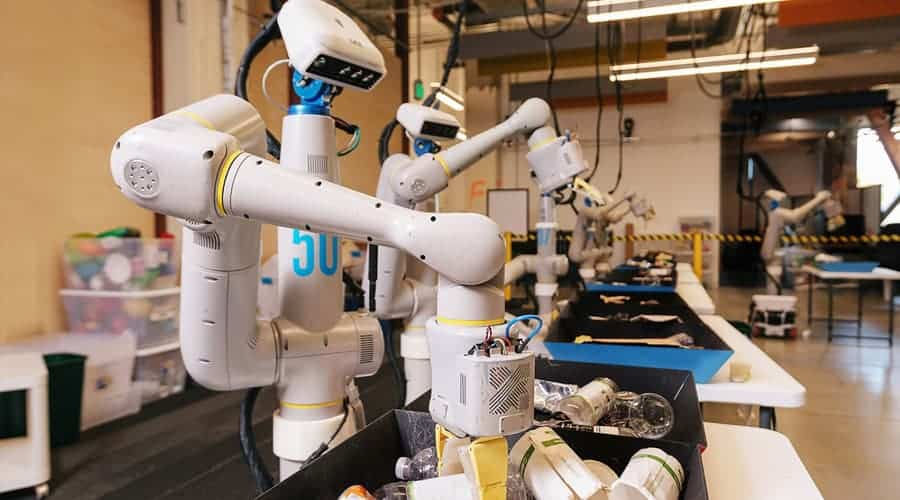Robots to the Rescue: How Automation is Revolutionizing Waste Management
- ierminstituteseo
- Jun 10, 2023
- 3 min read
Updated: Nov 2, 2023
Robots have the potential to make a significant contribution to the fight against climate change and the protection of the environment.

Waste and Resource Management is a complex and challenging task. It requires a large workforce, specialized equipment, and a lot of time and money. However, automation is revolutionizing waste management, making it more efficient, cost-effective, and environmentally friendly.
One of the most common applications of automation in waste management is the use of robots to sort recyclables. Robots can quickly and accurately sort recyclable materials, such as paper, plastic, and metal. This helps to reduce the amount of contamination in recyclable materials, which can lead to higher recycling rates and lower costs.
Robots are also being used to collect recyclables from homes and businesses. These robots can autonomously navigate sidewalks and streets, collecting recyclables from bins and depositing them into collection trucks. This frees up human workers to focus on other tasks, such as educating the public about recycling and inspecting recyclable materials for contamination.
In addition to sorting and collecting recyclables, robots are also being used to clean up Landfill Issues. These robots can safely and efficiently navigate landfills, collecting hazardous materials and debris. This helps to reduce the environmental impact of landfills and improve public safety.
Robots that collect waste can autonomously navigate sidewalks and streets, collecting waste from bins and depositing it into collection trucks. This frees up human workers to focus on other tasks, such as educating the public about recycling and inspecting recyclable materials for contamination.
Robots that clean up landfills can safely and efficiently navigate landfills, collecting hazardous materials and debris. This helps to reduce the environmental impact of landfills and improve public safety.
The use of robots in waste and resource management is still in its early stages, but it has the potential to revolutionize the industry. Robots can help to make waste management more efficient, cost-effective, and environmentally friendly.
Automation is having a major impact on the waste management industry. It is making waste management more efficient, cost-effective, and environmentally friendly. As automation continues to evolve, it is likely to have an even greater impact on the way we manage waste.
Here are some of the benefits of using robots in Waste and Resource Management :
Increased efficiency: Robots can perform tasks more quickly and accurately than humans. This can lead to significant time and cost savings.
Improved safety: Robots can work in dangerous and hazardous environments that would be too risky for humans. This can help to reduce workplace injuries and fatalities.
Reduced environmental impact: Robots can help to reduce waste and pollution. For example, robots can sort recyclable materials more accurately, which can lead to higher recycling rates.
Created new jobs: The development and use of robots has created new jobs in the waste management industry. For example, there is a growing demand for engineers, technicians, and operators to maintain and operate robots.
Despite the benefits of using robots in waste management, there are some challenges that need to be addressed:
The cost of robots: Robots can be expensive to purchase and maintain. This can be a barrier for some waste management companies.
The need for specialized training: Robots require specialized training to operate and maintain. This can be a challenge for waste management companies that do not have the resources to provide this training.
The potential for job displacement: As robots become more sophisticated, they may eventually be able to perform many of the tasks that are currently performed by human workers. This could lead to job displacement in the waste management industry.
Overall, the use of robots in waste management has the potential to revolutionize the industry. Robots can help to make waste management more efficient, cost-effective, and environmentally friendly.
However, there are some challenges that need to be addressed, such as the cost of robots and the need for specialized training. As the technology continues to develop, it is likely that robots will play an even greater role in waste and resource management.



Comments